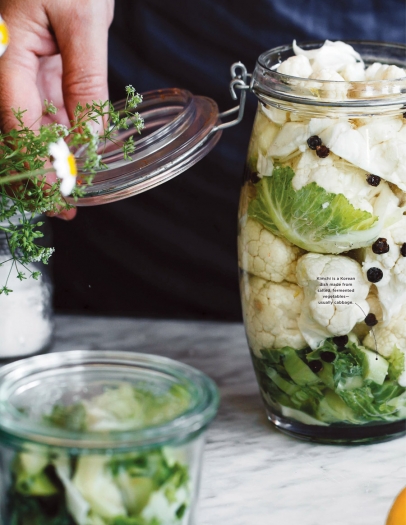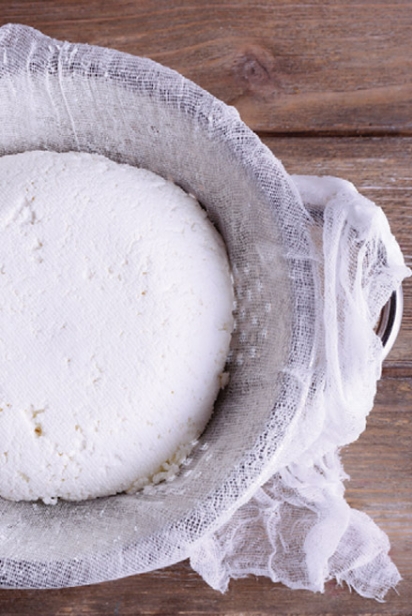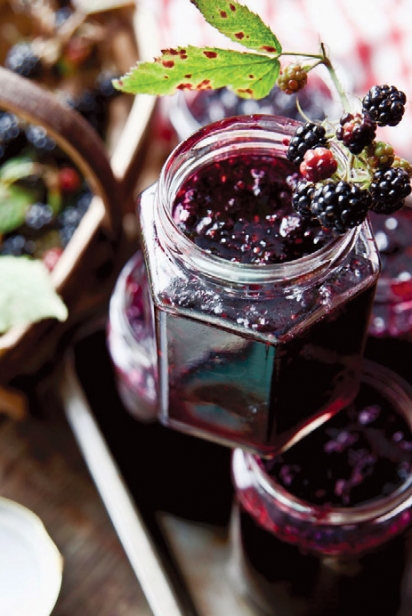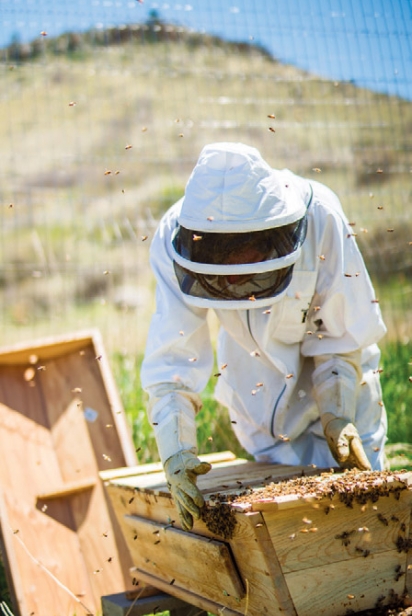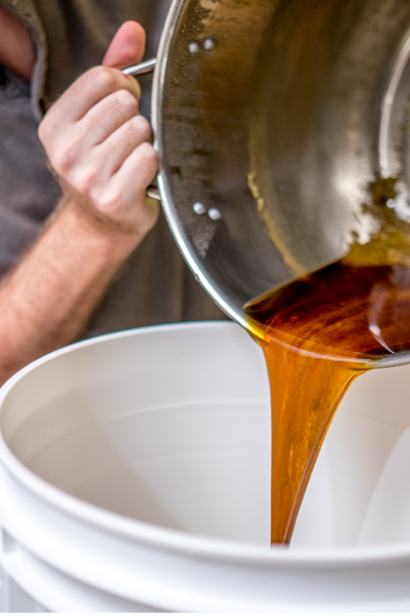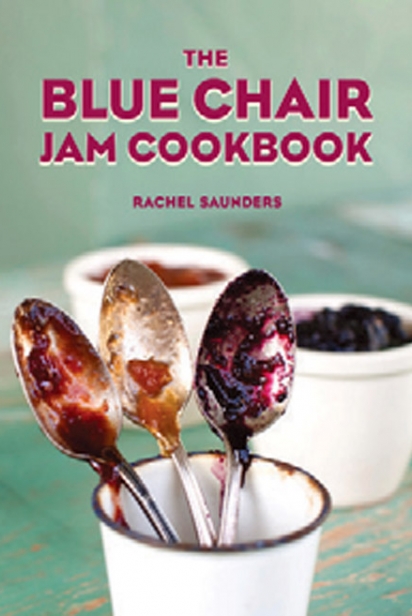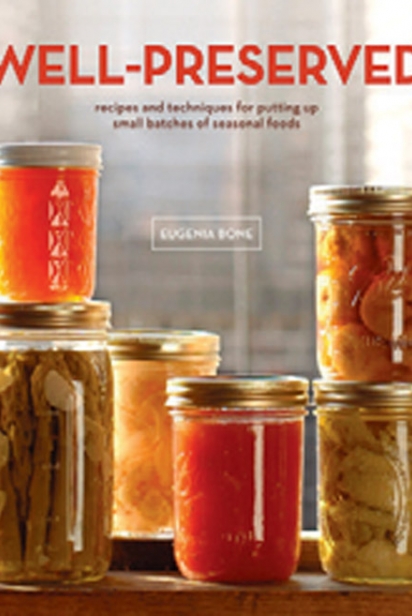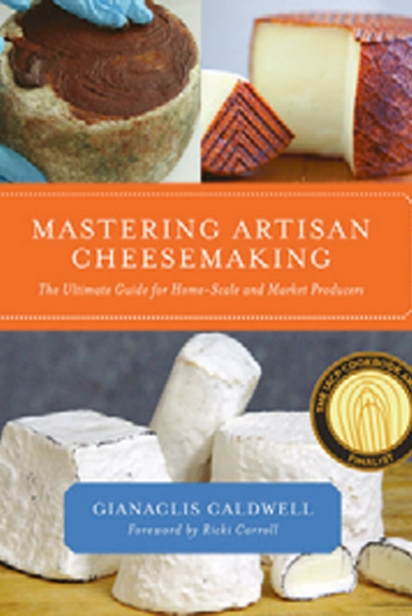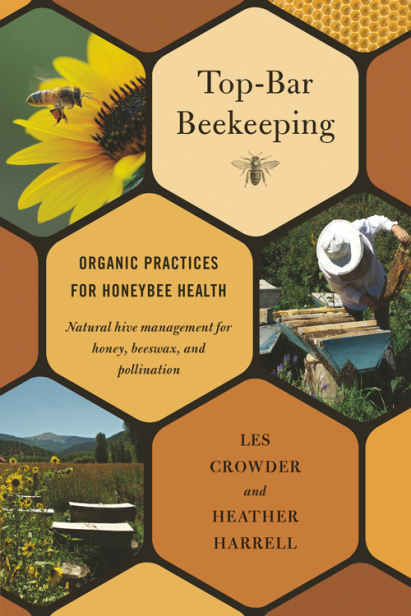Brewing, Beekeeping & Bitters
Making and cultivating artisanal foods, from cheese to kimchi
Colorado has made a national name for itself in craft brewing and distilling and the state is also no slouch when it comes to making cheese, keeping bees and putting up produce. Our agricultural heritage and short growing season have spawned generations of home cooks and professionals who carry on the legacy of “getting by.” The boom in craft food companies and classes dedicated to these old-school pursuits are proof-positive that Coloradans can’t get enough of fermented food and drink. Here are some of our favorite recreational and vocational programs, some of them taught by food and beverage industry professionals.
Editor’s note: This is a diverse selection curated by our writer and staff, designed to inspire you to try your hand at making craft food and drink, but it is by no means a comprehensive listing of educational programs.
Distilling
The Colorado Department of Education–approved Colorado School of Clinical Herbalism in Boulder offers certificate programs in subjects like Advanced and Clinical herbalism, and Nutrition. Summer workshops and retreats include mead-making, wild food foraging and cooking and a weekend-long intensive in “the Alchemy of Fermentation” (from history, wellness and science to the production of foods like sourdough bread, herbal sauerkrauts, non-dairy cheeses and lacto-fermented sodas), held at their partner farm in Paonia. (720.722.4372, ClinicalHerbalism.com). Earth Medicine Collective Apothecary in Carbondale explores local gardens and wild spaces, teaching the medicinal qualities of plants for use in herbal teas and other tonics to heal, soothe and refresh. (970.618.6233, EarthMedicineCollective.wordpress.com). At the dreamy, riverside Lyons Farmette in Boulder County, you can learn the history and craft of making cocktail bitters, as well as take home your own tinctures, made with neighbor Spirit Hound Distillers’ products. There are also farm dinners and a multitude of other traditional home arts workshops, from wool spinning to beekeeping, which covers the necessary equipment, start-up costs and how to purchase commercial bees. (303.746.6266, LyonsFarmette.com). In Denver, Moon Dance Botanicals is a shop dedicated to aromatherapy and all-natural bath and body products (crafted in-house) and botanical-based spa services, but it’s also a school with hands-on classes in the bygone arts of backyard kitchen medicine, introduction to herbal medicine making, infusions, decoctions and tea-blending basics. (303.263.7275, MoonDanceBotancials.com). Centennial’s Downslope Distilling makes craft spirits, but they also have a distillery school designed for would-be commercial producers. The two-day introduction to distilling course and workshop covers everything from logistics and equipment to hands-on training in pre- and post-production, business plans, marketing and distribution. Ask for details on their partnership with Hyatt House for discounted room rates. (303.693.4300, DownSlopeDistilling.com).
Brewing
Basalt-based renaissance man and accomplished homebrewer, baker and fermented food guru Michael Thompson offers homebrewing workshops by request, in collaboration with the local club he cofounded, Roaring Fork High Altitude Mashers (HAMs). Members include retired professional brewers and beer judges. Students receive instruction on the process, equipment, ingredients and sourcing necessary for homebrewing beer, as well as a demonstration of malt extract brewing or all-grain methods, which take two to five hours, respectively (contact mthompson.architect@gmail.com to schedule, Facebook.com/RoaringForkHAMs/). Thompson also teaches private fermented food preservation and kombucha brewing by request. At Lakewood beer supply shop Barley Haven, the emphasis is on quality ingredients, signature beer brewing kits and equipment (they also carry winemaking and distilling products). They offer classes that cater to both home enthusiasts and those interested in commercial production, like essentials of beer making and a partial-mash beer class. There’s also a two-day distilling school workshop. (303.936.2337, BarleyHaven.com). Colorado Boy is a craft brewery in Ridgway that offers an intensive immersion course for would-be professional brewers. Designed to be taken by two partners, the hands-on coursework is split between business education and working in the on-site brewery, and making of your own batch of beer. Areas of concentration include grain-to-glass production, business operations, pub design and layout, and recipes. (970.626.5333, ColoradoBoy.com).
Wine
Wine and Whey, a cheesemaking and wine supply shop in Denver, offers hands-on classes (private events are also available) in winemaking, using wine kits (you must purchase prior to class; these packaged concentrates come in a diverse array of varietals, from Italian Barolo to Mosel Valley Gewürtztraminer). You’ll learn to age, treat, bottle and label your own “vintage,” using carboys. Each class consists of four sessions over a six-week period; at completion, you’ll take home 28 to 30 bottles of your own wine with self-designed custom labels. (303.325.3831, WineAndWhey.com). The Denver campus of the International Wine & Spirits Guild is an acclaimed Vocational Wine School designed for enthusiasts and those already in the industry. It was “established to encourage study to develop technical and professional understanding and increased knowledge … throughout all areas of the wine, spirits and food service industry.” Whether you’re looking to become a cellar master, certified sommelier or a Guild Wine Master Educator (MWE), there are 25 entry-level-to-advanced courses: Examples include Level I Wine Seminar, Advanced Blind Tasting, International Wine Markets and Management, and Advanced Wine & Food Pairing. (303.296.3966, InternationalWineGuild.com).
Grand Junction’s Western Colorado Community College is located in the epicenter of Colorado’s wine region, so it’s fitting they offer a new Associate of Applied Science two-year degree in viticulture and enology—the first of its kind in the state. The major provides “the entrepreneurial and technical skills necessary to manage a profitable, environmentally sound, vineyard and/or winemaking business,” with an emphasis on sustainable viticulture and Colorado cultivars, as well as practical field training, wine production and vineyard management. There are also one- to two-semester technical certificates in enology, viticulture and wine professional; students don’t need to be enrolled in the AAS program for study. (970.255.2670, ColoradoMesa.edu).
Cheesemaking/Dairy
The biodynamic grassfed Jersey, Guernsey and cross-breed dairy cows at Carbondale’s Sustainable Settings produce some of the most flavorful, nutrient-rich milk in Colorado, all the better for their cultured dairy workshops, which offer hands-on instruction in making yogurt, kefir and crème fraiche, which are made with beneficial bacteria and are high in probiotics. (970.963.6107, SustainableSettings.org). Denver’s Wine and Whey provides hands-on private and small-group instruction on creating fresh, bloomy-rind and soft cheeses and dairy products including burrata, feta, queso fresco, cottage cheese, brie, blue, Monterey Jack and butter. (303.325.3831, WineAndWhey.com). At The Art of Cheese in Longmont, founder and head “cheese coach” Kate Johnson offers a variety of classes and multi-day workshops (which can include local dairy visits). Cheesemaking 101 delves into the science of cultured curds and the ingredients and equipment needed (you’ll also make beginner-friendly ricotta or chevre), while hands-on beginner, intermediate and advanced classes focus on the production of fresh, aged, soft-ripened, blue or washed-rind varieties, all of which can be made at home. (TheArtOfCheese.com). At Mountain Goat Lodge, a pastoral B&B and hobby goat dairy in Salida, co-owner Gina Marcell teaches goat husbandry classes by appointment, as well as weekly hands-on cheesemaking courses open to guests and the public (using her own goats’ milk) on fresh styles like chevre, feta, paneer and mozzarella; even Greek-style yogurt. (719.539.7173, MountainGoatLodge.com).
Preserved Foods
The Cooking School of Aspen offers year-round courses on various types of preserving, from a summer farmers’ market and pickling class that includes a sourcing trip, to pickling with flavor, which teaches technique and tips on how to use these fermented foods to amplify everything from snacks to main dishes. (970.920.2002, CookingSchoolOfAspen.com). Colorado State University Extension in Arapahoe, Boulder and Jefferson Counties offers food preservation workshops including pressure canning; Preserving 101: How to Preserve Foods Safely; and Jams, Jellies and Fruits (303.730.1920, Arapahoe.Extension.ColoState.edu/Workshops). CSU Extension classes are based on community need, so if you’d like to see preserving or other classes in the Roaring Fork Valley, request them at your local office (Eagle County, 970.328.8630, or Garfield County, 970.625.3969). Cook Street School of Culinary Arts in Denver offers hands-on recreational classes like The Preservation Society, a course that teaches “historical methods of food preservation and their modern applications,” with instruction on smoking, pickling, fermenting and curing, as well as relevant food safety (303.308.9300, CookStreet.com). The seasonal Cultured Vegetables intensive at Sustainable Settings delves into the history of lacto-fermented foods and hands-on production of sauerkraut and seasonal, biodynamically grown produce harvested on site; you’ll take home at least one jar and taste an array of delicious fermented foods (970.963.6107, SustainableSettings.org).
Beekeeping
Sustainable Settings offers a Bee Guardians workshop in spring that covers basic bee ecology, bee communication and how critical honeybee genetic diversity is to local and global plant and crop pollination and production. Skills include learning how to establish a hive, obtaining bees, catching feral swarms and the importance of treatment-free beekeeping. If combs are present, honey harvest and processing demonstration will also be covered. A more advanced Session II course is available to students who have taken the Session I workshop, which offers education on queen-less hives, overwintering and harvesting and processing all comb types. (970.963.6107, SustainableSettings.org). Growing Gardens is a Boulder-based nonprofit with an admirable mission: To “enrich the lives of (the) community through sustainable urban agriculture.” From teen leadership programs and kids’ summer camps to horticultural therapy for seniors and those with disabilities, Growing Gardens’ programs emphasize hands-on skill-building and interaction with the natural world. Their eight-week beekeeping series is tailored to support new hobbyists and experienced apiarists alike throughout an entire beekeeping season; education includes practical labs and information on sustainable top-bar hives (in addition to Langstroth hives). The annual series runs one weekend day per month, March–October. (303.443.9952, GrowingGardens.org). The famed Butterfly Pavilion in Westminster is a paradise for kids and budding entomologists and marine biologists. Would-be apiarists can take an intensive, five-class, seasonal beekeeping boot camp, which is qualified through the Colorado State Beekeeping Association (CSBA). Coursework includes classroom instruction as well as hands-on practice and observation in the gardens; topics include hive management and maladies, honey extraction and winter preparation. (720.974.1877, Butterflies.org).
Resources
The Blue Chair Jam Cookbook, by Rachel Saunders (Andrews McMeel Publishing) is highly technical yet engaging, with over 100 unusual—and incredibly delicious—recipes that emphasize seasonality and esoteric varieties of fruit.
Esteemed Colorado food writer Eugenia Bone’s Well-Preserved: Recipes and Techniques for Putting Up Small Batches of Seasonal Foods (Clarkson Potter) focuses on easy recipes that utilize surplus fruit and vegetables.
Mastering Artisan Cheese-making: The Ultimate Guide for Home-Scale and Market Producers, by Gianaclis Caldwell (Chelsea Green Publishing).
Top-Bar Beekeeping: Organic Practices for Honeybee Health, by Les Crowder and Heather Harrell (Chelsea Green Publishing) includes information on hive construction; The Barefoot Beekeeper, by Philip Chandler (self-published) focuses on small-scale, low-impact beekeeping.


